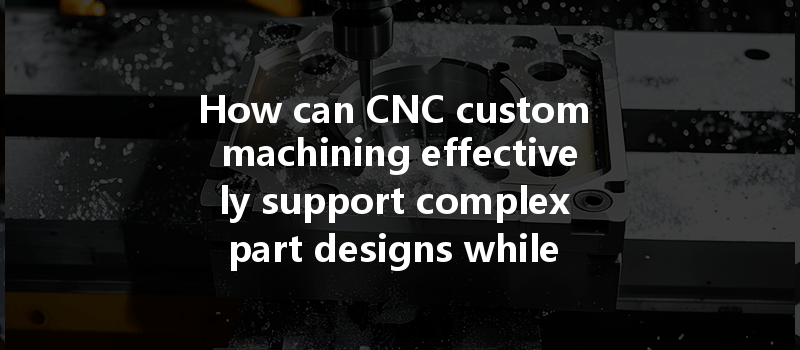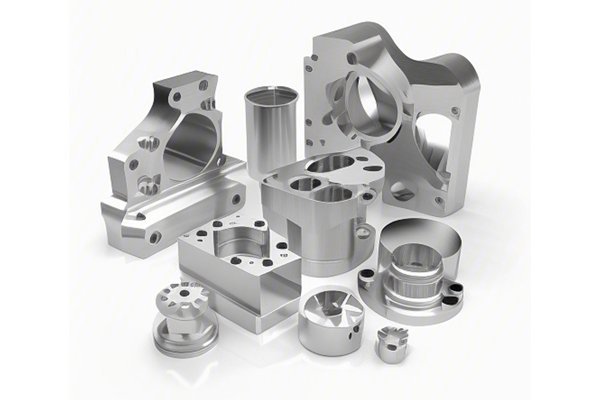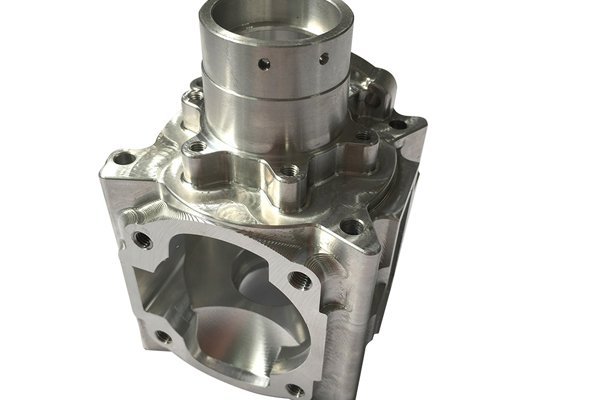Did you know that more than 30% of manufacturing companies cite “timely delivery” as a critical factor influencing their ability to meet customer demands? In today’s fast-paced industrial landscape, the demand for custom parts with intricate designs continues to surge. For businesses focused on achieving a competitive edge, the challenge lies in not just creating complex component designs but also delivering them on time without compromising quality. Enter CNC (Computer Numerical Control) custom machining – a revolutionary technology that shapes the future of manufacturing. In this blog, we will explore how CNC custom machining effectively supports complex part designs while ensuring timely delivery and establishing a streamlined workflow that balances quality and efficiency.
The Role of CNC Custom Machining in Complex Designs
CNC machining transforms digital designs into physical components using a range of cutting tools controlled by computer software. The key strengths of CNC custom machining are its flexibility, precision, and scalability, making it indispensable in producing parts that meet the complexity and specificity of design requirements.
In the realm of custom machining, precision is paramount. CNC machines boast unparalleled accuracy, which is vital when producing parts with tight tolerances or intricate geometries. The ability to create multi-axis movements allows CNC machines to craft complex features, such as undercuts, internal cavities, and intricate shapes that were once deemed impossible with traditional methods.
Tool Path Optimization: CNC software can calculate the most efficient tool paths, minimizing waste and reducing the time taken to achieve complex designs.
High-Quality Materials: CNC machining can accommodate various materials, from metals to polymers, enhancing its utility in achieving precise designs regardless of material constraints.
Custom machining with CNC not only enhances precision but also offers immense flexibility when it comes to design modifications. As project requirements shift, manufacturers can easily make updates to digital files without facing extensive retooling costs. This rapid iteration process enables businesses to adapt quickly to changing market demands or design challenges.
Rapid Prototyping: With CNC machines, it’s possible to produce prototypes in a fraction of the time required by traditional machining methods. This accelerates the feedback loop between design and manufacturing, improving efficiency.
Material Versatility: The compatibility with different materials allows CNC machining to cater to a wide range of industries, from aerospace to healthcare, enabling the creation of unique and specific designs tailored to each sector’s needs.
Ensuring Timely Delivery Through CNC Custom Machining
While intricate designs are crucial, timely delivery often makes or breaks a project. The good news is that CNC custom machining is designed to enhance not just quality but also efficiency. Here’s how it achieves that:
Automation plays a pivotal role in ensuring timely delivery. CNC machines can operate continuously, producing high volumes of parts without the direct intervention of an operator. This 24/7 capability contributes significantly to shorter lead times.
Integrated Scheduling Systems: Utilizing advanced scheduling software allows manufacturers to plan machining operations better, predict delays, and allocate resources effectively to streamline production.
Reduced Setup Times: CNC machines require less setup time compared to manual machining since they can be programmed to switch between different tools and processes quickly.
Quality assurance is integral to timely delivery. With CNC custom machining, quality control processes can be seamlessly integrated throughout various production stages.
Real-Time Monitoring: Advanced CNC systems utilize sensors and data analytics to monitor the machining process in real time, quickly identifying any deviations from the design specifications before they escalate into larger issues.
Standardized Testing Protocols: Implementing standardized testing protocols allows for consistent quality assessments, ensuring that all parts meet established quality criteria before they are shipped.

Partnerships with suppliers play a pivotal role in effective CNC custom machining. Establishing strong relationships with material suppliers can lead to reduced lead times and more reliable sourcing of raw materials.
Local Sourcing: Working with local suppliers can significantly cut down on shipping times and associated costs, allowing for prompt delivery of materials, further boosting manufacturing timelines.
Collaborative Forecasting: By collaborating with suppliers, manufacturers can better forecast demand, ensuring they have the necessary materials on hand when production ramp-ups occur.
Case Studies of CNC Custom Machining Success
To illustrate the effectiveness of CNC custom machining in supporting complex designs and timely delivery, let’s explore two notable case studies.
Case Study 1: Aerospace Component Manufacturing
An aerospace parts manufacturer faced challenges in producing critical engine components due to complex geometries and stringent regulatory requirements. After incorporating CNC custom machining technology into their production process, they were able to achieve:
Reduced machining time by 40% through automation and optimized tool paths.
Increased precision, allowing for complex internal features that met the aerospace industry’s rigorous regulatory standards.
Expedited delivery, enabling them to fulfill contracts ahead of schedule, thereby increasing their market competitiveness.
Case Study 2: Medical Device Production
A medical device company struggled with delays in prototype production, affecting their product development timelines. By investing in CNC custom machining, they realized:
Shortened prototyping cycles, resulting in a 50% faster turnaround time from design to functional prototype.
Enhanced compliance with industry standards through improved precision and quality control measures.
Expanded production capabilities, allowing for the quick adaptation of designs based on clinical feedback without needing extensive retooling.
Navigating the complexities of modern manufacturing while ensuring timely delivery is a delicate balancing act that can make a significant impact on a company’s bottom line. CNC custom machining stands at the forefront of this challenge, offering a powerful solution that merges careful design with comprehensive efficiency.
From enhancing precision in intricate designs to streamlining delivery processes through automation and quality control, CNC custom machining empowers manufacturers across various sectors to meet their project goals while satisfying customer demands. The case studies above further reinforce the technology’s ability to adapt and thrive in dynamic market conditions.
In this rapidly evolving industry, understanding and utilizing CNC custom machining can provide your business with a competitive edge. As you consider the implications for your operations, remember the importance of timeliness and quality. Investing in CNC custom machining doesn’t just enhance production capabilities; it positions your organization for future growth and success in an increasingly complex world.
—






